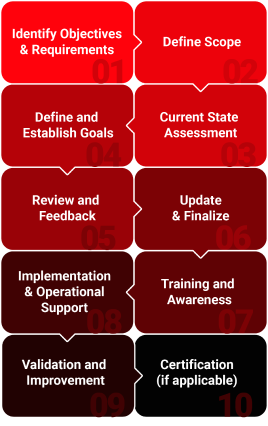TPRM Components
Third-Party Risk Management (TPRM) is a critical discipline that ensures these risks are identified, assessed, and mitigated effectively. Here are the key components of a robust TPRM program.
The initial step of identifying all third parties involved in the organization's operations.
Evaluating the potential risks associated with each third party. This includes cybersecurity, financial, reputational, and compliance risks.
Continuously tracking third-party activities and performance to identify emerging risks.
Incorporating risk mitigation measures and security requirements into contracts with third parties.
Developing and testing plans to respond to and recover from security incidents involving third parties.










